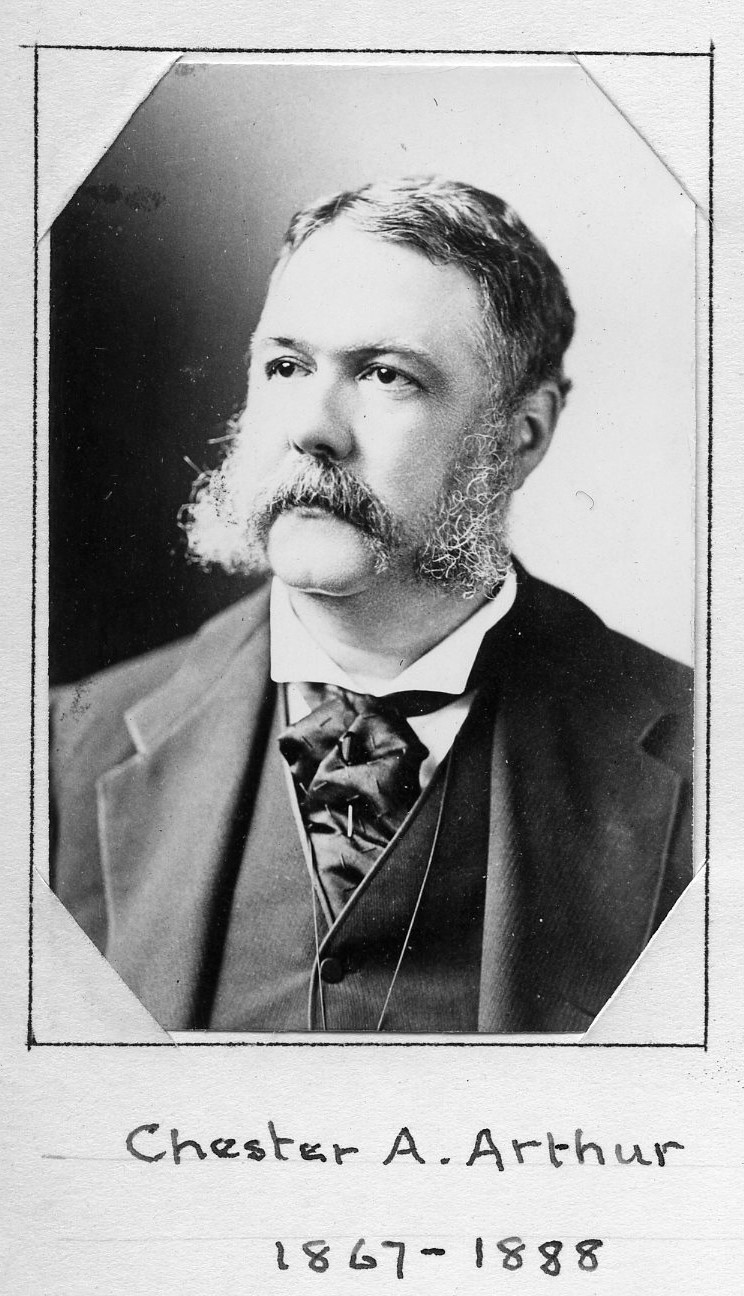Politician/U.S. President
Centurion, 1867–1886
Born 5 October 1829 in Fairfield, Vermont
Died 18 November 1886 in New York (Manhattan), New York
Buried Albany Rural Cemetery , Menands, New York
, Menands, New York
Proposed by Horace M. Ruggles and James F. Dwight
Elected 2 November 1867 at age thirty-eight
Archivist’s Note: Uncle of Arthur H. Masten
Century Memorials
The names of Samuel J. Tilden and Chester A. Arthur recall everything that is recent in our national history.
Horace W. Robbins
1887 Century Association Reports
Chester Alan Arthur was a graduate of Union College, a Republican who worked as a lawyer before becoming the 20th vice president under James Garfield. While Garfield was mortally wounded by Charles J. Guiteau on July 2, 1881, he did not die until September 19, at the Buffalo home of John G. Milburn. Arthur was then sworn in as President, serving until March 4, 1885.
Before entering elected politics, Arthur was the Collector of Customs for the Port of New York, a position to which he was appointed by President Ulysses S. Grant. He was then removed by the succeeding President, Rutherford B. Hayes, who was intent on rooting out patronage, even though Arthur had proved to be a prudent administrator.
As President, he became a champion of civil service reform. Arthur’s primary achievement was the passage of the Pendleton Civil Service Reform Act. The passage of this legislation earned Arthur the moniker “The Father of Civil Service.” Publisher Alexander K. McClure wrote, “No man ever entered the Presidency so profoundly and widely distrusted, and no one ever retired . . . more generally respected.” Mark Twain, deeply cynical about politicians, conceded, “It would be hard indeed to better President Arthur’s administration.”
With the secret knowledge that he was dying, Arthur declined to campaign in 1885 and on the fourth ballot lost the Republican nomination to James Blaine, his former Secretary of State. Blaine was defeated by Grover Cleveland. Arthur died of Bright’s disease in November 1886, six years after his wife succumbed to pneumonia. Arthur was described by one admirer as “the greatest social lion we have had in many years,” but historians generally give mediocre marks to his abbreviated presidency.
James Charlton
“Centurions on Stamps,” Part I (Exhibition, 2010)

